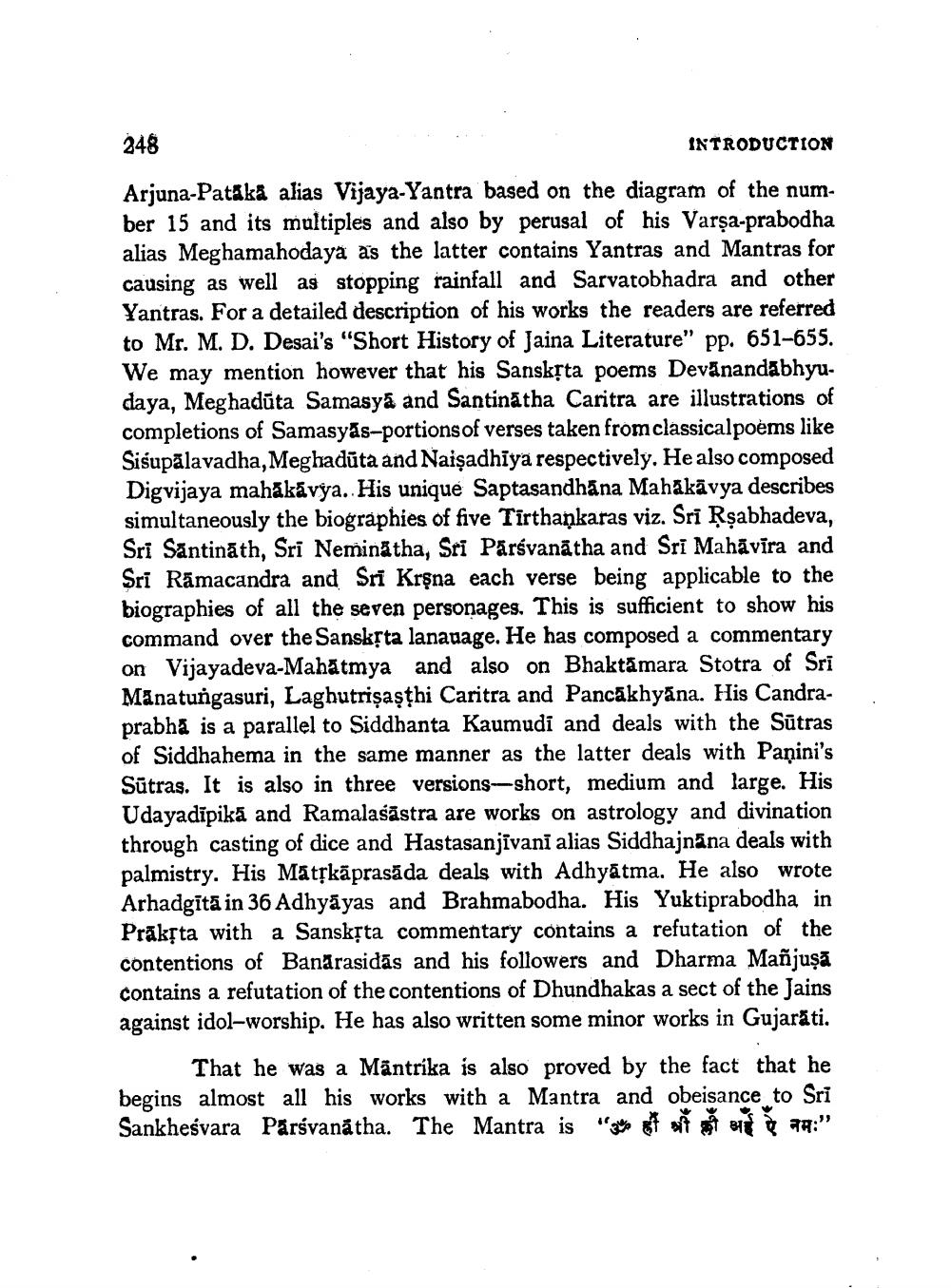________________
248
INTRODUCTION
Arjuna-Pataka alias Vijaya-Yantra based on the diagram of the number 15 and its multiples and also by perusal of his Varsa-prabodha alias Meghamahodaya as the latter contains Yantras and Mantras for causing as well as stopping rainfall and Sarvatobhadra and other Yantras. For a detailed description of his works the readers are referred to Mr. M. D. Desai's "Short History of Jaina Literature" pp. 651-655. We may mention however that his Sanskṛta poems Devānandābhyudaya, Meghadūta Samasya and Santinatha Caritra are illustrations of completions of Samasyas-portions of verses taken from classical poems like Sisupälavadha, Meghadūta and Naiṣadhiya respectively. He also composed Digvijaya mahākāvya. His unique Saptasandhana Mahäkävya describes simultaneously the biographies of five Tirthankaras viz. Sri Rṣabhadeva, Sri Santinath, Sri Neminatha, Sri Parsvanatha and Sri Mahāvīra and Sri Ramacandra and Sri Krsna each verse being applicable to the biographies of all the seven personages. This is sufficient to show his command over the Sanskṛta lanauage. He has composed a commentary on Vijayadeva-Mahatmya and also on Bhaktamara Stotra of Sri Manatungasuri, Laghutrişaşṭhi Caritra and Pancakhyāna. His Candraprabha is a parallel to Siddhanta Kaumudi and deals with the Sūtras of Siddhahema in the same manner as the latter deals with Panini's Sūtras. It is also in three versions-short, medium and large. His Udayadipika and Ramalasastra are works on astrology and divination through casting of dice and Hastasanjīvanī alias Siddhajnana deals with palmistry. His Matṛkāprasāda deals with Adhyatma. He also wrote Arhadgītā in 36 Adhyāyas and Brahmabodha. His Yuktiprabodha in Prakṛta with a Sanskṛta commentary contains a refutation of the contentions of Banarasidas and his followers and Dharma Mañjuṣā contains a refutation of the contentions of Dhundhakas a sect of the Jains against idol-worship. He has also written some minor works in Gujarāti.
That he was a Mantrika is also proved by the fact that he begins almost all his works with a Mantra and obeisance to Sri Sankheśvara Parsvanatha. The Mantra is ":"




